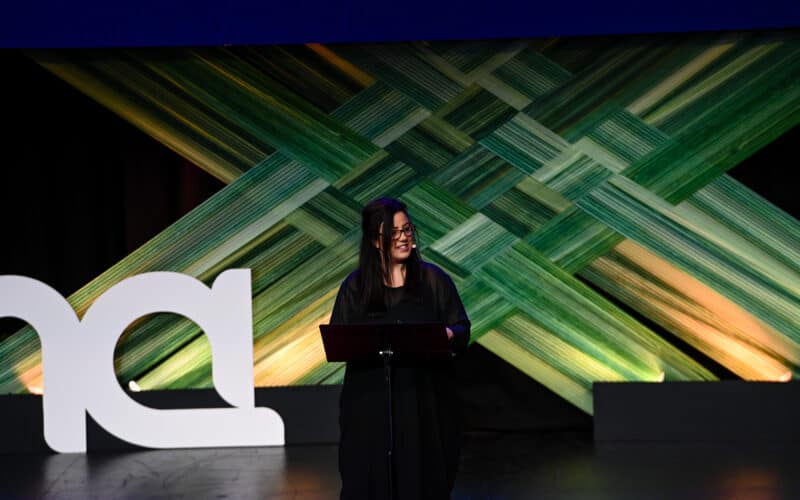
Tech company pleads for businesses to help rebuild food production in region.
New Zealand’s response to Cyclone Gabrielle is a good barometer for our ability to meet the climate crisis nationally, Toha co-founder Nathalie Whitaker says.
She told the E Tipu IFAMA 2023 World Conference in Christchurch that the industry cannot wait for the government to show it the way and that businesses should be prepared to spend now or suffer later.
Toha is an independent technology infrastructure company that offers carbon credits outside of the Emissions Trading Scheme.
Following Gabrielle, Whitaker directed Toha’s expertise into the East Coast Exchange, a community-led organisation based in Gisborne that is keeping a public record of the work happening on the ground in Tairāwhiti and Hawke’s Bay.
Whitaker said she had been hesitant to leave Gisborne to attend the conference but couldn’t pass up the opportunity to make a plea to industry leaders.
“On behalf of the East Coast I need to ask for your help,” she said. “We can’t build nature-based solutions unless we’re prepared to pay those on the ground to make it happen. We must pay for the work to recover our food production capabilities.”
It cannot be left to the government because the three-year cycle gives food producers no certainty.
“We need to move faster than the politics. Wellington doesn’t set the pace and 2030 is coming very fast.”
The East Coast Exchange created a public record so people could get on with helping each other knowing the funds would flow later.
Despite hers being a team of technology professionals, Whitaker realised that after a weather event of this size it was Post-it notes and clipboards that were most helpful in the first days of the recovery.
“We’re not an emergency response charity, we’re a climate data co-op, but we did what we could.”
What the exchange did achieve was to protect the trust that is embedded in the coast community.
But as public interest waned it was important to keep up the momentum with funding and commitment from the wider food production industry.
“If you know of resources or funding that should get to cyclone-hit farmers, help us close the gap.”
Longer-term, Whitaker implored the industry to approach Scope 3 emissions in a just manner.
“If you have net-zero targets – we’re concerned that the cost will be pushed down to the Scope 3 players and they can’t afford it.
“The challenge must be turned into a massive opportunity for resilience and generosity.
“If you have a hard-to-solve emissions problem, we can put some of your future carbon credit budget to work now. It will be amazing to claim we can produce nature-positive food in the future, but that’s not the case now. Let’s prove the sceptics wrong and prove we can pay for what’s needed.
Whitaker said the East Coast holds the key to how NZ can prosper.
“Gizzy is to NZ what NZ is to the rest of the world. Every primary industry sector is represented there. If the East Coast can’t nail a just transition then I’m unsure if there’s any hope for any other region.
“More events like Gabrielle are coming, which is why we need a monumental recovery for the East Coast now. Failure is not an option.”






















